 |
 |
|
 |
 |
 Father and daughter
Pai e filha
Father and daughter
Pai e filha
Poem: Father
 Father and daughter
Father and daughter
1-7 Father, father! The town’s people hate us And will give us no respite. They wish to kill my father! It worries me so much, I must not allow them. I will protect my father. 2-7 Father,
father! Why do they hate us? I do not understand. Mother worries too,
Does she know why it is? I must always be strong, I will defend you father.
3-7 Father, father, We should go away, Only
us together, To live our life in peace, Where they cannot hurt us, Far
from this city’s ire, Absent from this torment. 4-7 Oh father, father,
Why refuse to escape? He would not go away, They all remained behind.
I went to find new worlds, Later could not return To live in hell again.
5-7 Father, father! I was not strong enough To there also remain. I feared to lose my peace Through the torment of The long battle of words, Waged through the years. 6-7 Father,
father, The pressure of hate, I could no longer face And could not survive.
I am so sorry father I could not stand by you, To be martyred. 7-7 Oh my father, At last they succeeded, As
they were sure to do. They killed you father, And my mother too, as I
knew their hate would do. Spite and envy took it’s toll.
Poema: Meu Pai
 Pai e filha
Pai e filha
1 Meu pai, meu pai, A cidade nos odeia e Não nos darão a paz. Querem matar meu pai! Eu me preocupo tanto Mas não vou os deixar. Vou te proteger, meu pai. 2 Meu pai,
meu pai, Porque eles nos odeiam? Eu não compreendo. Minha mãe
teme também. Sabe ela o porquê disso? Eu tenho que ser forte, Eu
te defenderei, meu pai. 3 Meu pai, meu pai, Vamos embora todos,
Juntos nós a partir para Viver a vida em paz. Pra’ onde o ódio da cidade
Não nos alcançará, e assim Ausentar-nos da tormenta. 4
Oh meu pai, meu pai, Porque recusas a fugir? - Mas ele não quis ir, e
Todos permaneceram. Eu fui correr o mundo e Não quis mais ali voltar,
A viver naquele inferno. 5 Meu pai, meu pai! Não pude eu ser forte, Para ali permanecer e Com a família sofrer a Longa batalha de palavras Que lutaram muitos anos. 6 Meu pai, meu
pai! Com a força do ódio eu Não pude conviver e Fugi
para sobreviver. Meu pai desculpe-me! Não pude ao seu lado Ser
martirizada. 7 Oh meu pai, Um dia conseguiram O que tanto queriam. Eles te mataram pai e A minha mãe também. O ódio os aparelhou, A inveja os conduziu. A.L.P. Gouthier, 2014
Thecho do epilogo do livro Pindorama.
 ACHIEVEMENT / REALIZAÇÁO
ACHIEVEMENT / REALIZAÇÁO
Eventualmente o Pindohagar do povo krenac tornou-se o Pindorama dos tupis, em seguida a Terra da Santa Cruz dos portugueses, e depois o Brasil para os brasileiros e o mundo.
A década de 1580 marcou o fim de uma fase exploratória da Pindorama pelo português, e também, o início de uma nova identidade nacional, algo que não existia antes. Este foi o resultado do amor pelo país
onde habitavam, que cresceu nos corações de pessoas de muitas raças e credos, mas nascidos no mesmo solo, compartilhando o mesmo meio ambiente e vivenciando os mesmos acontecimentos.
Não existe tal coisa como chegar em um território novo e vazio, pois sempre houve alguem antes. A aurora da civilização remonta a centenas de milhares de anos, não só na antiga Ásia ou na Europa, mas em todos
os lugares.
Eu nomeei Brasil Pindorama durante todo este livro apenas para chamar a atenção o meu ponto de vista que este país é tão antigo como todos os do hemisfério
norte, portanto, a nossa história não deve começar com a chegada do português, como é normalmente apresentado nos livros de história .
Excerpt from Epilogue of Pindorama
 A felicidade está no encanto da realizacao e entusiasmo do esforço creativo.
A felicidade está no encanto da realizacao e entusiasmo do esforço creativo.
Eventually the Pindohagar of the Krenac became the Pindorama of the Tupis, then the Land of the St. Cross of the Portuguese, and then Brazil to Brazilians and the world. The 1580s marked the end of an exploratory phase of the Pindorama by the Portuguese, and also, the beginning of a new national identity something that had not existed before. This was the result of the love for their home country that grew in the hearts
of people of many races and creeds, yet born into the same land sharing the same environment and experiencing the same events. There is no such thing as going into a new and empty territory, as
there has invariably been a previous settler. The dawn of civilisation goes back hundreds of thousands of years, not only in old Asia or Europe, but everywhere. I named Brazil Pindorama through-out
this book only to make my point that this country is as old as all those of the northern hemisphere, therefore our history should not start with the arrival of the Portuguese which is how it is usually presented in history books.
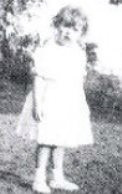 This was me. / Essa era eu.
This was me. / Essa era eu.
Trecho de livro A Guerreira
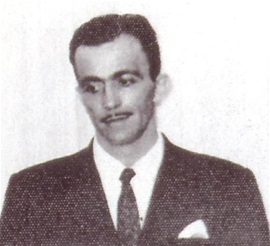 Esse é o meu pai.
Esse é o meu pai.
Esta memória fotográfica minha pode ser um fardo para a minha sensibilidade emocional e, ao mesmo tempo, é uma ferramenta maravilhosa para o trabalho de uma escritora. Lembro-me de tantas coisas.
O bom, o mau, tudo está presente em minha mente como se estivesse num livro organizado de história, com pequenos detalhes, emoções, imagens visuais e sons, exatamente como aconteceu. É como neste caso, que tem mais de 60
anos. E ainda agora eu reajo a essa memória, da mesma forma, que eu me lembro de ter feito antes.
- Esse sempre foi o nosso problema. Papai e eu éramos tão parecidos! Nós
dois sempre fomos excessivamente emocionais.
Meninas são geralmente fascinadas pelos seus pais, assim como os meninos são pelas suas mães. O meu filho passou anos me olhando
com adoração e dizendo: "Maman você é linda", que ele pronuncia "boroful", como ele não conseguia nem falar direito ainda.
- Eu era loucamente apaixonada pelo meu
pai, desde a infância! Uma das minhas primeiras lembranças era dele me contando uma história antes de dormir sobre um marinheiro, que invariavelmente me fazer chorar.
O que me
lembro dela era assim: Havia um marinheiro que tinha o hábito de cantar enquanto ele trabalhava no seu barco, à margem de um grande rio, onde ele trabalhava. Sua filhinha, em casa, sempre se sentia muito tranquilizada pelo som da voz de seu pai
à distância. Ouvia isso todos os dias no início da manhã e, novamente, antes do sol baixar, quando ele voltava. Um dia, ele não retornou e houve silêncio. Algo havia acontecido que o pescador nunca mais voltou para casa.
- Eu, ao ouvir esta história associava o meu pai com o marinheiro, e ficava terrivelmente perturbada e dizia: Oh papai, nunca vá embora!
Lembro-me claramente de ter feito, na epoca, uma imagem mental da história em que o porto onde o marinheiro mantinha o seu barco estava abaixo de um penhasco, e não podia ser visto da sua casa, mas a sua voz ao cantar o mantinha
ligado a sua amada filha. Eu tentei me lembrar do resto da história, mas eu era muito pequena então, provavelmente com menos de três anos, e nada mais me voltava à mente, até quando eu decidi dígitar este pequeno poema
escrito por meu pai, para minha mãe em seu caderninho de poesia datado de 1932 a 1936. E mais uma vez, eu chorei porque o marinheiro tinha sido sequestrado, ou porque eu sinto falta do meu pai.
Excerpt from book the Warrior
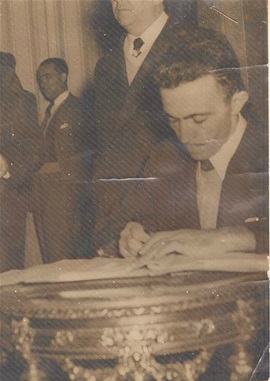 This was my father.
This was my father.
This eidetic memory of mine can be a burden to my emotional sensibilities and, at the same time, is a wonderful tool to the writer’s trade. I remember so many
things. The good, the bad, it all stays in my conscious mind as an organized book of history, with little details, emotions, visual pictures and sounds, exactly as it happened, as in this case, more than sixty years ago. And I now still react to the
memory of it, in the same way, that I remember having done before. - That was always our trouble. Father and I were so similar! We were both overly emotional. Little girls are often fascinated by their fathers, as little boys are for their mothers. My son spent years looking at me adoringly saying: “Maman you are beautiful”, which he would pronounce “boroful” as he could not
even speak yet. - I was madly in love with my father, from babyhood! One of my earliest recollections was of him telling me a bedtime story about a sailor, which would invariably make me cry.
As far as I remember, it went like that: There was a sailor who was in the habit of singing while he worked, by his boat, on the shore of a large river where he worked. His little daughter, back home, always felt very
reassured by the sound of her father’s voice in the distance. She heard this each day in the early morning and again before sun down, when he returned. One day, he did not return and there was silence. Something had happened that the fisherman never
came back home. I, listening to this bedtime story associated my father with the sailor, and got terribly distraught and would say: Oh papa, never go away! I remember clearly having made a mental picture of the story in which the port where the sailor kept his boat was down a cliff, and could not be seen from his home, but his singing voice kept him linked to his beloved daughter. I tried as hard
as I could to remember the further context of the story but I was too young, probably less than three years old, and nothing else came to mind until when I decided to digit this little poem written by my father to my mother in her little notebook of poetry
dated from 1932 to 1936. And again, I cried because the sailor had been kidnapped, or because I miss my father.
 Stoning the inocent / Apedrejando os inocentes.
Stoning the inocent / Apedrejando os inocentes.
Prologo de Converging Horizons
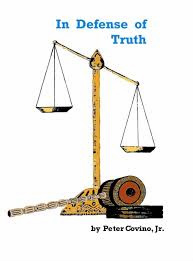 Em defesa da verdade.
Em defesa da verdade.
Eu cheguei à conclusão de que somente a verdade, toda a verdade e nada mais que a verdade poderá defender a minha família em geral, das falsidades e mitos difundidos sobre nós.
Portanto, a história que vou relatar irá divulgar tudo o que eu vivi, ouvi, vi e pude descobrir.
Para o público em geral, eu explico que nós não eramos importantes,
apesar de ricos. Mas nós sempre fomos tão perseguidos localmente. As atenções eram direcionadas pricipalmente para o meu pai, mas desde pequena até eu fui literalmente apontada, o que foi muito difícil para uma criança
e depois uma jovem. Esta tendência tornou-se, atravez do tempo, numa forma de ostracismo social acompanhada de frequentes ataques e criticas pessoais.Nós não tivemos escolha senão permanecermos entre nós mesmos,socializando
quase somente entre a família. Sobrevivemos e prosperamos, e continuamos a viver isolados, nem um pouco conhecidos fora das montanhas de nosso estado, situado no coração do Brasil.
Na verdade, foi somente na epoca da divisão de herança do meu pai que alguns, que nos odeiam, decidiram oferecer às histórias carregadas de veneno à imprensa nacional, algumas verdadeiras e outras mentiras completas,
num esforço de difamar a memória de meu pai e punir seus três filhos do casamento por ter existido. O escândalo que se seguiu a deste esforço difamatório durou pelo menos 25 anos e foi encenado na mídia nacional,
para o mundo inteiro ver, apesar de nosso grande horror.
Enquanto isso continuou os acusadores e os moradores da cidade riam-se de nosso desconforto. Nós, na epoca, nao vimos nenhuma oportunidade
de defesa que nao iria apenas atiçar ainda mais o fogo de acusações mútuas em público, e optamos por manter um silêncio digno, à espera de que o tempo esfriasse os entusiasmos e os ódios. Agora, nós
ainda lutamos, sobrevivemos e prosperamos pelo século XXI, apesar de todos os esforços para nos destruir.
Isso parece excessivamente dramático? Sim, acho que pareceria assim
para aqueles que não tiveram de viver atravez disso.
Quando eu comecei a idealizar a minha Saga de família, a minha primeira escolha de título para ela foi ‘Em defesa!’
No entanto, me desaconcelharam a usar esse título, mais de uma pessoa, por mostrar muita agressividade. Portanto, eu vim a chamá-la de 'Saga do Horizonte', por tanto dessa história se passar na cidade de Belo Horizonte.
Um dia desses, enquanto eu pesquisava sobre emblemas da justiça dos meus dois países, deparei-me com as palavras ‘Em Defesa’ no emblema da Justiça Inglesa, em latim, da seguinte forma:
IN DEFENS - NEMO ME IMPUNE LACESSIT, que eu interpretei como: ‘Em Defesa - Do fim da impunidade’.
Este é um conceito muito em voga no Brasil nos dias de hoje e, Deus nos ajude,
eu não sei o quão longe vamos chegar como nação.
Como uma familia, defender o fim da impunidade também inclui não permitir que mentiras descansem sem contestação.
Permitir que uma falsidade permaneça só, é como aceita-la-la e, com o tempo, permitir que ela se torne a única verdade na memória das pessoas. Portanto, eu tenho que protestar. Após toda uma vida tentando não
ser notada, eu não consegui falar por mim mesma. O trauma me fez temer as atenções. Por isso, eu criei Anastasia Perséphone, minha outra persona, que se atreverá a contar a sua versão da história de sua família,
para competir com a versão de nossas vidas espalhados por nossos inimigos!
Eu vejo a minha saga como biografia histórica e, como tal, os aspectos culturais da vida cotidiana são
de extrema importância. Consequentemente, vou incluir em cada capítulo as condições sócio-econômicas da área onde meus personagens viviam e os aspectos da história mundial que os levou a alterar o curso
de suas vidas. Além disso, para contar a nossa história eu voltarei aos nossos antepassados, porque nós somos o resultado deles. Nossos costumes, códigos de honra e comportamento em geral é consequencia dos ensinamentos de
nossos antepassados.
Prologue of Converging Horizon
I have concluded that only the truth, the whole truth and nothing but the truth will defend us, my family in general, from the falsehoods and myths spread about us. Therefore, the story I will relate will disclose
all that I lived, that I heard, saw and could find out. To the public in general I explain that we were not at all important, though wealthy in our time. As a family, we had always suffered from
much generalised local persecution. The blunt of it was directed towards my father, but as I lived I was often literally pointed at, which was very difficult for a child and later a youngster. This trend developed into a form of social ostracism and the occasional
denigrating campaign. We had no choice but to withdraw into our midst, socialised mostly among the family and never did frequent society, local or otherwise. We lived on, prospered, and continued not to be much known beyond the mountains of our state, somewhere
in the heart of Brazil. It was actually only at the time of the division of my father’s inheritance that some, who hated us, decided to offer to the national press stories tinged with poison,
some true, others complete lies, in an effort to vilify the memory of my father and to punish us, his three children of his marriage, for having existed. The ensuing scandal of this defamatory effort lasted at least twenty-five years and was playacted in the
national media for the whole world to see, to our great horror. While this went on the accusers and townspeople laughed at our discomfiture. We then saw no chance of defence, unless to further stoke
the fire of mutual accusations in public, and chose to keep a dignified silence, awaiting for time to cool enthusiasms or hatreds. Now we fight on, survive and still thrive into the twenty-first century, in spite of all the efforts to destroy us.
Does that sound overly dramatic? Yes, I suppose it probably does to those who did not have to live through it.
When I first started putting together my family saga, my first choice of title for it was ‘In Defence!’ However, I was discouraged as to this title, by more than one person, because it showed too much aggressiveness. Therefore, in time I came to
name it the ‘Horizon Saga’, as much of the story happens in the city of Belo Horizonte. One of these days, while researching of the emblems of justice of my two countries, I came upon
the words “In Defence” again, in the emblem of the English Justice, in Latin as, as follows: IN DEFENS – NEMO ME IMPUNE LACESSIT, which I have interpreted as: ‘In Defence – of the End of Impunity’. This is a concept very much in vogue in Brazil these days and, God help us, I do not know how far we will get as a nation. However, impunity also includes not permitting
lies to rest unchallenged. To allow untruth to exist alone is to tolerate it and, in time, allow it to become the only truth in memory of people. Therefore, I have to contest it. After a lifetime of trying to avoid notice, I could not speak out for myself.
Trauma had made me shy of the limelight. Therefore, I created Anastasia Persephone, my other persona, who will dare to tell her version of her family’s story, to compete with the version of our lives spread by our enemies! I see my saga as historical biography and as such, the cultural aspects of everyday life are of utmost importance. Consequently, I will include in each chapter the social economic conditions of the area where my characters lived and
those aspects of world history that caused them to alter the course of their lives. Moreover, to tell our story I will go back to our ancestors because we are the result of them. Our mores, codes of honour and behaviour in general is a result of the teachings
of our forebears.
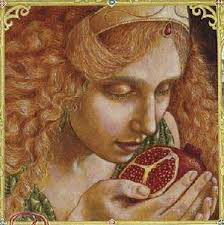 Persephone
Persephone
Os aliados ingleses
Trecho de PINDORAMA, capitulo: Os aliados ingleses. Foi para Barbados que os ancestrais
de minha mãe, o Dayrells, foram no século 17, onde se tornaram plantadores de cana de açúcar. Por volta do século 19 o Dr. John Dayrell,
avô da minha avó, se mudou para o Brasil com sua família. No século 20, seu descendente, minha mãe, também se casou com um plantador de cana-de-açúcar, que veio a ser o meu pai. Até hoje, ainda
estamos no negócio de cana-de-açúcar. Eu mesmo, uma quarta geração Dayrell, voltei para a Inglaterra e me tornei britânica. Após cem anos de miscigenação, principalmente com descendentes de portugueses,
eu ainda mantive os cabelos dourados e pele clara, mas não foi bastante para me classificar como inglesa. Afinal, o Dayrells eram normandos e não
anglo-saxões,e o seu nome é originário da aldeia de Airelle, em Calvados. Assim, o mundo gira em volta, as pessoas se deslocam daqui para ali, e às vezes voltam ao seu país de origem.
The English Alliance, Sept 14
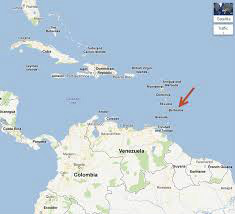 Barbados
Barbados
Passage in PINDORAMA, Chapter: The English Alliance. It was to Barbados that
my mother’s ancestors, the Dayrells, went in the 17th century, where they became sugar-cane planters. By the 19th century Dr John Dayrell, my grandmother’s grandfather, moved to Brazil with his family. In the 20th century their descendent, my mother,
also married a sugar-cane planter, who was to be my father. To this day we are still in the sugar-cane business. I myself, a fourth generation Dayrell, went back to England and became British. After one hundred years of miscegenation, mostly with the Portuguese,
I still kept my golden locks and fair complexion but did not qualify to be English. After all, the Dayrells were Normans and not Anglo-Saxons, their name originating in the village of Airelle, in Calvados. So the world spins round, people move here and there,
and sometimes go back again to their country of origin.
|
|
 |
|
|
|